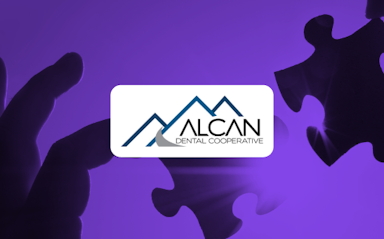Benefits of Dental SEO & How to Get Started
To understand the importance of SEO, just think back to your recent google search. It’s likely that you selected a search result that showed up among the top 5 listings.
To understand the importance of SEO, just think back to your recent Google search. It’s likely that you selected a search result that showed up among the top 5 listings.
As the SEO landscape continues to become increasingly complex and competitive, hiring a qualified SEO professional is a worthy investment.
Optimizing your website for SEO gets your site ranked in the top cluster of local search listings and in the top search results for long-tailed keywords. For instance, “Dental implants for teens in Florida” is an example of a long-tail keyword, while “Dentist Florida” is a keyword used in a local search. Relevant long-tail keywords can be identified by the keywords patients use when researching oral health ailments.
Benefits of Local SEO
Local SEO is about proximity and relevance and helps your practice drive more web traffic and get more patients. Let’s look at the benefits of local SEO for your practice.
Build Credibility, Reputation & Conversion Rates Organically
Online reviews are a crucial factor that impacts local search rankings. This includes the number of reviews you receive, the overall quality of those reviews, and the authority of the review sites themselves.
Dental experts claim that dental anxiety is a leading factor that impacts patient visitations. Thanks to Amazon, reading reviews before every purchase is the new norm among consumers. Negative reviews will add fuel to the paranoia that patients already have about dental procedures.
But what happens when you do get a negative review? During such instances, it is crucial to take the interaction offline and ensure that you resolve patient concerns. Follow this up with a request, asking them to reconsider and update their reviews. Handling negative reviews is one half of the coin, the other has to do with religiously collecting positive reviews from your existing patients.
A higher conversion rate is something every dental practice works towards. Local directory marketing is where a local online directory lists a business’s information (including Name, Address, Phone number, and at times more information). In local geo-targeted searches, these directories often appear prominently in search results.
Getting your practice listed on such local online directories often increases the chances of conversion rates by 50%.
Practice management software allows you to collect reviews from your patients in a manner that is convenient to both the practice and the patient. Use the law of averages to work in your favor.
A higher count of reviews reflects positively on the professionalism of your practice, improves your local SEO ranking, and encourages new patients to choose you over your competitors.
Enhance Online Citations & Visibility
Anytime your dental practice gets mentioned online, it qualifies as a citation. This includes any and every detail related to your practice and includes name, phone number, and location. More citations on google or social media pages exponentially increase your visibility online.
Be Locally Visible
In dental SEO, inbound marketing makes the practice visible to potential patients in nearby locations looking for dental services. Optimizing the website for better visibility and ranking will secure more leads than traditional marketing methods.
Tips for Effective Dental SEO
Now that we’ve tapped into the benefits of an effective SEO, it is time to discuss how to plan and implement an effective SEO strategy for a dental practice.
Build Your Google My Business Page
Inarguably, Google plays a major role in how users find products and services near them or in any specific location. With an active Google business account, patients don’t have to spend time browsing through search listings to find your website and get your location and contact.
Google Business provides a section on the right-hand side of the results page that lists key information like contact, working hours, map location, patient reviews, and testimonials. This helps patients spend less time locating your practice.
If new patient feels that your practice fits their criteria, then they are highly likely to contact you, rather than scroll down to the next listing on the search results page.
On-Page Website Optimization
Optimizing your website by choosing the right keywords is the best of it all. Keywords are possible words that your potential patients might search for. For example, ‘dental practices near me’ or ‘best dental implant services.’
Adding these keywords to your website content strategically will improve your chances of being listed on the top results when a local search is initiated. Choosing the right URL is also important to get your practice listed.
High-Quality Content
Content optimization never goes out of trend in the whole SEO realm. The quality of content will be analyzed to evaluate the trustworthiness of your content and website by the search engines during the page ranking.
Credibility is the key and makes sure that you add factors that bolster your practice like patient reviews, doctor’s credentials, testimonials, etc., including high-quality long-form content which is more than 800 words with the right keywords and linking content are likely to generate higher traffic and visibility for your dental practice.
Be Mobile Friendly
Being mobile-friendly goes without saying these days. It is the unwritten rule for every website to reach its potential customers. Optimize your dental practice website to be compatible with mobile devices, through which a lion’s share of online searches are performed.
Test the loading speed of your website on mobile devices using Google’s free speed testing tools to get a better understanding of the website’s mobile performance.
Optimize User Experience
Strategically improving the user experience side of your dental practice website will take you higher on Google’s ranking. As most of the traffic is coming through mobile devices, mobile responsiveness is a factor the search engine prioritizes while ranking a website.
Adopting and optimizing a mobile-first web design, Google will crawl through your website and URLs to index it. Stick with a design that is agile, intuitive, and adaptive for better user experience and ranking.
Voice Search Optimization
The ratio of voice searches is increasing drastically, and optimizing your website for voice searches has become inevitable for better reach and ranking. With the convenience and speed, the voice search offers, use voice-friendly keywords and phrases to make it work.
Smart assistants like Alexa and Siri have made it all the easier for users and ensure that your website can keep up with the evolving technologies. Keep in mind that the way we talk and the way we type are not the same, and let the voice search optimization begin.
A solid local SEO strategy significantly impacts your practice’s bottom line. 97% of consumers use search engines to learn about local businesses. Having your site ranked among the top listing for local search engine results can make the difference between netting local customers and missing out on valuable needs. Considering the ever-increasing competition in the dental industry, local SEOs are a must-have strategy in your practice playbook to acquire new patients.




